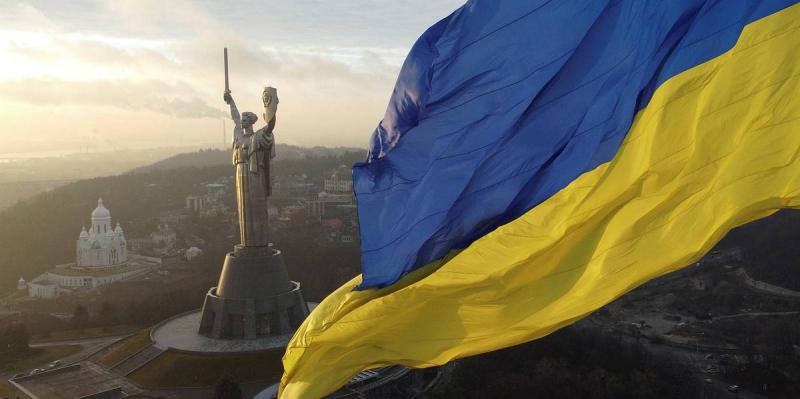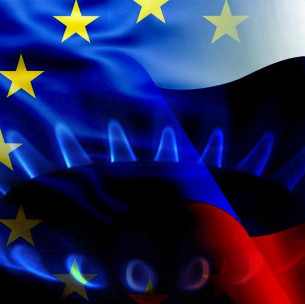
© REUTERS/Valentyn Ogirenko
In fact, the year 2022 marks the thirtieth anniversary of USSR’s collapse, given that its Belovezh verdict was signed at the latter end of 1991. It is really fitting that today we observe that verdict being “sentenced”, like death is being trampled down by death, to put it in a high-flown manner. At the physical level, the level of personalities, this refers to the death of the three Belovezh accord’s creators – Burbulis, Kravchuk, and Shushkevich. At the level of political and geopolitical processes this implies a radical revision of the entire Białowieża heritage, a lot more decisive than Crimea’s reunification with Russia in the spring of 2014.
We can see how the Russian state and society are resolutely revising what Putin called a major geopolitical catastrophe of the 20th century. The historical injustice stipulated Russia’s loss of hundreds of thousands square kilometers of its territory and tens of millions of compatriots. One has to see and perceive that we've all been there to come for something we own, what has been viciously stolen from us in a yielding moment. There have been precedents similar down to the smallest detail.
The first and most obvious one is Germany. Before the Napoleonic Wars, numerous German principalities, duchies and kingdoms, along with those of another tribe, were part of the Holy Roman Empire of the German Nation (Heiliges römisches Reich deutscher Nation), which contemporaries ridiculed as "not holy, not Roman, and not an empire," and raised issues regarding its affiliation with the German nation. With its looseness, complexity and self-contradictoriness, the empire reminded of the USSR in the last years of its existence, when the "parade of sovereignties" began in the republics, and RSFSR leader Yeltsin directly proclaimed: "Take as much sovereignty as you can swallow." And Gorbachev was sort of a "Roman emperor" in 1990-1991.
In 1806, Napoleon, who was conducting a series of successful wars of conquest in Europe, forced Emperor Joseph II to declare the dissolution of the Holy Roman Empire of the German Nation and only remain the emperor of Austria. He also became Buonaparte’s father-in-law. Next, the Corsican started to slapdash the German lands at his pleasure, including the creation of the kingdom of Westphalia, giving its throne to his brother Jerome. After the anti-Napoleonic coalition’s victory, a German alliance was formed under the auspices of England, Russia, Austria and Prussia, fragile not even like the late USSR, but the early CIS.
During the European "people’s spring" of 1848-1849, Germany might have united in a liberal democratic way, but king Frederick William IV of Prussia, whom the assembled national parliament offered the crown to, said he disdained to accept it from revolutionaries. In the meantime, Prussia went to war with Denmark for the duchies of Schleswig and Holstein that had a personal union with the Danish crown and whose German population was subjected to assimilation and pressure, both culturally and politically. The overall military successes favored Berlin, but the great powers forced the Prussians to back away.
It became clear that the German unification would be carried out "from above", if at all, which required additional forces, as well as diplomatic and geopolitical skills. Otto von Bismarck, who became head of the Prussian government in 1862, had plenty of it. First, he took revenge from Denmark, which forgot to have largely won the first war through the agency of its European "mentors", was overwhelmed with chauvinism, contempt for Prussia and a sense of being able to overcome it hands down, if necessary. Things turned out quite the opposite, and the geopolitical situation faced away from the northerners. The fascinating Danish drama series "1864" gives a detailed account of the history of this war, which evokes numerous associations with the ongoing Ukrainian crisis.
Austria then took the side of Prussia, and the victory brought Schleswig and Holstein under Austro-Prussian joint control, which did not suit Bismarck. However, the thirst for severalty ownership was the “Iron Chancellor’s” minor claim to Austria. Vienna’s opposition to Berlin as regards the unification of Germany was critical for him, an annoying alternative assemblage point, most attractive to the southern (and) Catholic lands. The huge snag of the austrocentric unification option was the motley ethnic “patchwork” of Habsburgs’ power, which gathered a variety of peoples from Hungarians, who eventually attained Austria's transformation into Austria-Hungary, to Italians and Carpathian Rusyns. (By the way, Austria's /Austria-Hungary’s control over vast territories, looseness and relative weakness were the reason why other great powers felt favorably towards its existence as an element of a geopolitical balance, a system of checks and balances). Hypothetical Habsburg Germany would either have to let go of most non-ethnic lands, or have a not-really-German face.
Allied with Italy, Bismarck began a war, not a civil one by definition but certainly an internal one, with many contemporaries calling it "fratricidal". Its purpose, however, was not Austria’s strategic surrender and obscurity ˗ it was enough to make it abandon its unifying ambitions and grant it the status of a junior ally. The "Iron Chancellor" attained this by decapitating his generals eager to parade through Vienna and offended when deprived of the pleasure.
The following ˗ and the last ˗ 50 years of "patchwork empire’s" existence featured the popularity and influence of German nationalists like Georg von Schönerer, who wanted Austria to become part of Germany even at the expense of losing provinces inhabited by other peoples. After WWI defeat, which entailed this loss in sort of a natural (and simultaneously catastrophic) way, there seemed to be no reason why this idea, supported by most Austrians, couldn’t be implemented. However, Austro-German unification was prohibited by the Entente, having faced contradictions between the right of nations to self-determination it proclaimed and unwillingness for Germany to gain anything after the war.
References to German history are certainly fraught with accusations of justifying Nazism, a desire to copy its path or the one which led to it. It is unclear, however, how to deal with the modern unification of Germany or, properly speaking, GDR’s absorption by West Germany. Oh well, let’s now turn to the country being the loudest accuser of Russia, namely the United States.
Even now, the divide between US parts, specifically between the North and the South, is greater than between modern Austria and Germany. A century and a half ago, it outweighed the Austro-German or Russian-Ukrainian differences all the more. Suffice it to read "Gone with the Wind" or at least F. Scott Fitzgerald's "The Ice Palace" with its story set around the 1880s, many years after the end of the Civil War. Its main lady character, southerner Sally Carroll, falls in love with a northerner, a "Yankee". Her childhood playmate Clark reproaches her for all but national betrayal, the girl laughs at him but eventually becomes homesick and returns to the South.
Did this somehow affect the Lincoln-led North’s determination to keep the southern separatists at bay? The answer is well-known.
The adjustment of unfairly established borders that tear apart historically united lands and peoples are doomed to take place, especially when a detached part of the people is subjected to genocide that becomes entangled with higher-order geopolitical collisions. Politicians have nothing to do with it much like Bismarck, Kohl or Lincoln. Kherson and Kharkov as Russian cities is much more harmonious than the "project Ukraine" "from Sana to Don".









